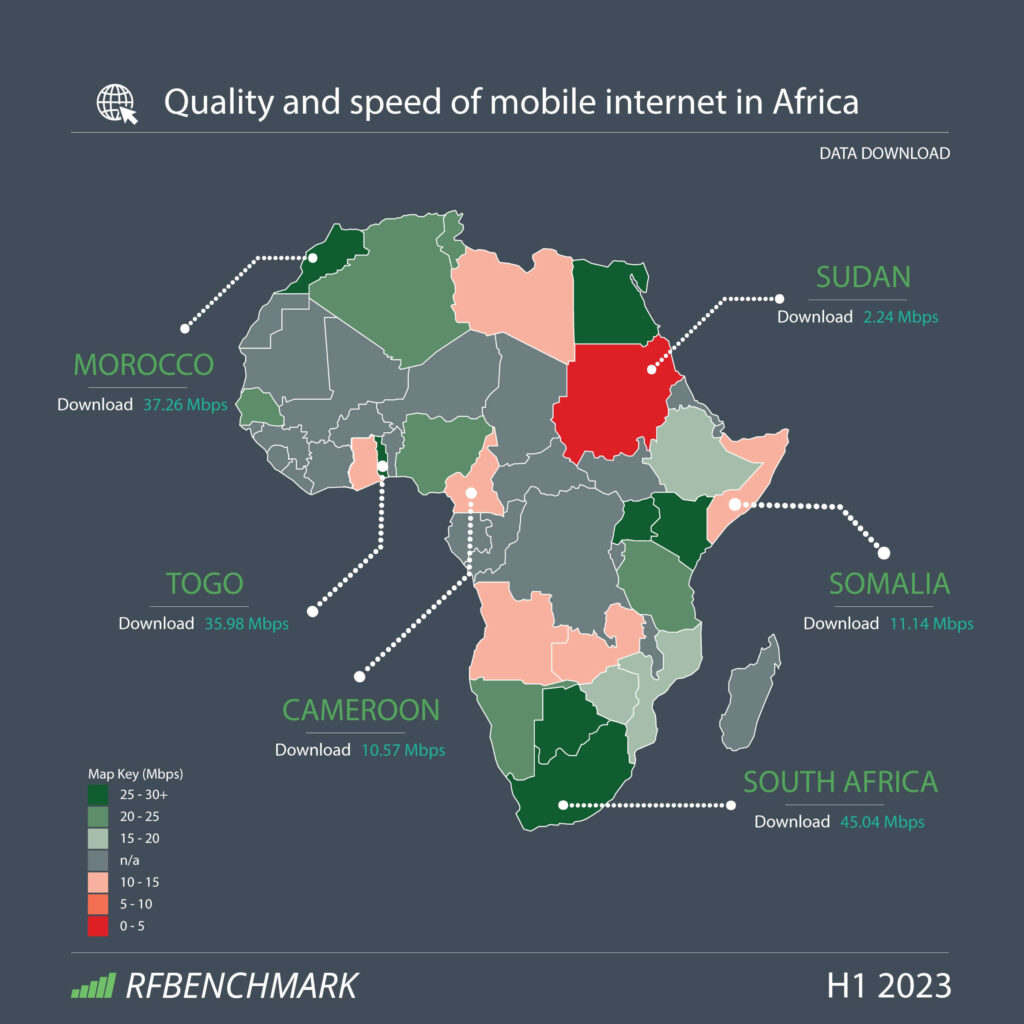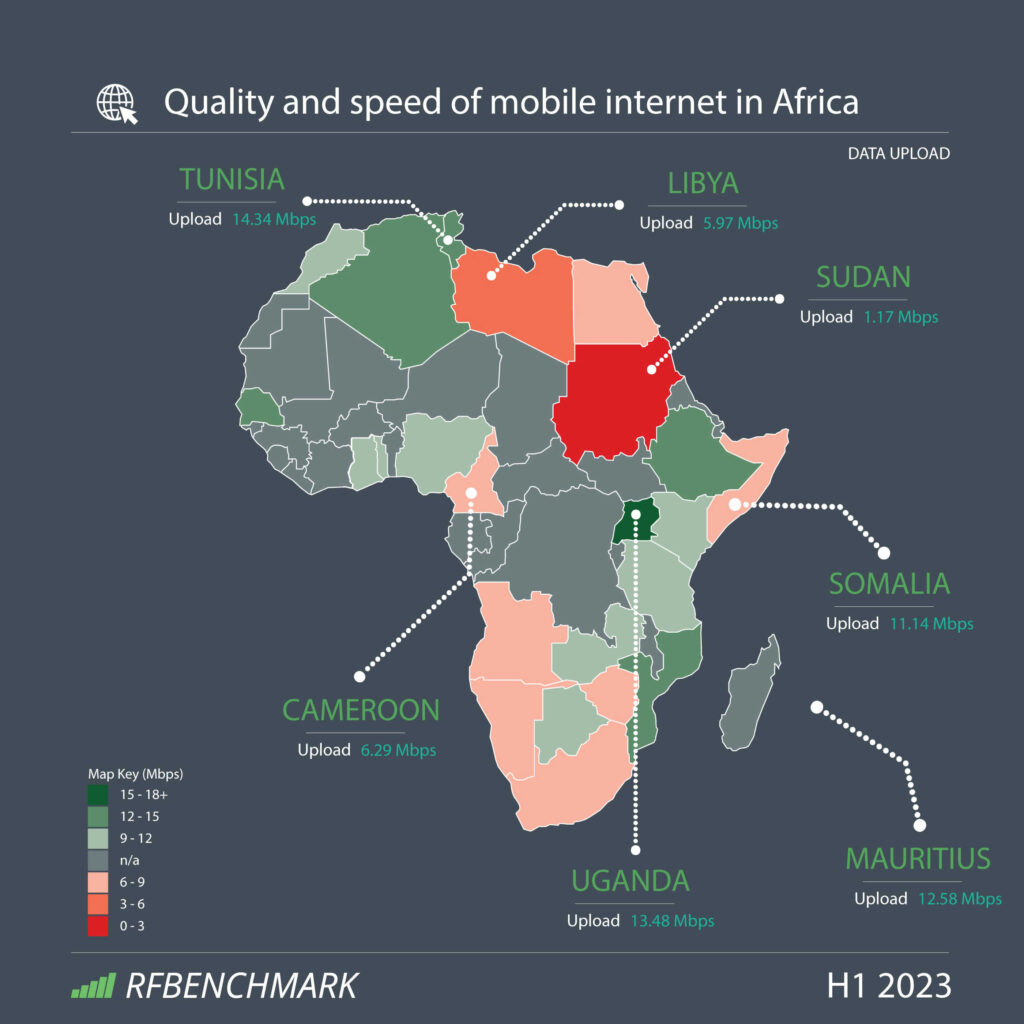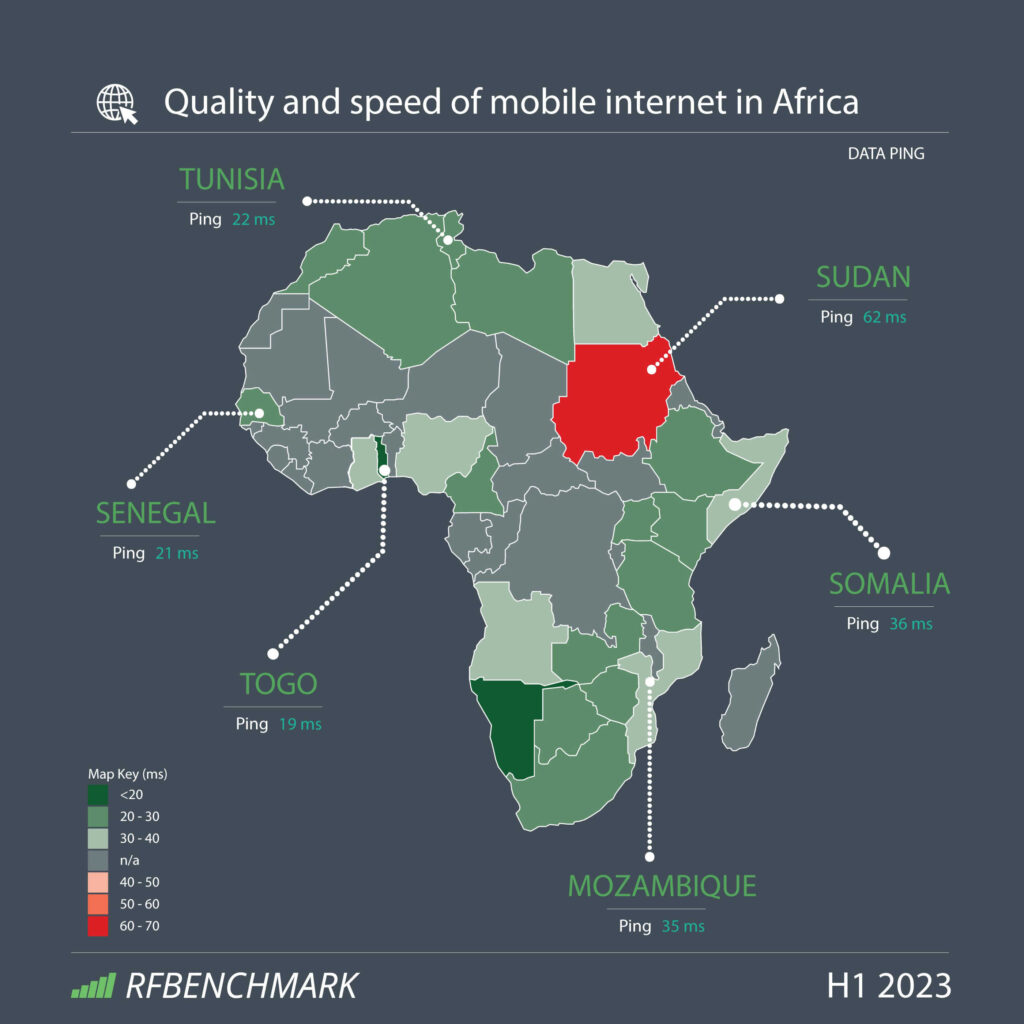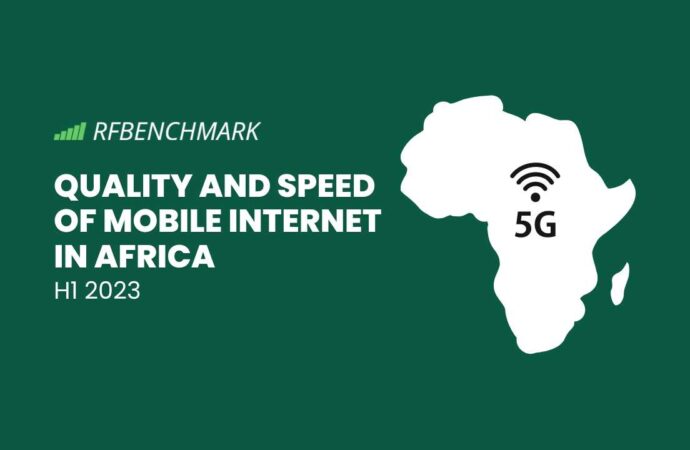Africa is at an exciting crossroads in its digital journey. The first half of 2023 has seen a surge in demand for fast and reliable mobile Internet, driven by rapid urbanization, population growth, and the increasing digitization of services.
Governments, telecommunications companies, and innovative start-ups across the continent have risen to the challenge, pouring resources into network infrastructure. The result? A noticeable uplift in the quality and availability of connections.
Yet, the digital landscape in Africa is as diverse as the continent itself. While some countries are sprinting ahead, pushing the boundaries of speed and quality, others are grappling with significant challenges. A variety of factors, from government policies and investment levels to technological advancements and digital literacy, have all played a role in shaping this landscape, painting a picture as complex as it is captivating.
Our report dives into the state of mobile Internet quality and speed in Africa in the first half of 2023. We have analyzed three key indicators – average data download speed, average data upload speed, and average ping value.
Average data download speed: South Africa (45.04 Mbps)
South Africa, with its well-developed infrastructure and strong regulatory environment, leads the continent in terms of average data download speeds, achieving an impressive 45.04 Mbps. Morocco, benefitting from its strategic location and significant foreign investments, follows closely with 37.26 Mbps. Togo, despite being a smaller player, has made significant improvements, ranking third with 35.98 Mbps.
On the other end of the spectrum, Sudan, currently struggling with political instability and economic challenges, achieved an average mobile Internet speed of just 2.24 Mbps. Cameroon and Somalia, both dealing with their own sets of challenges including internal conflicts and infrastructural deficits, recorded speeds of 10.57 Mbps and 11.14 Mbps, respectively.

Average data upload speed: Tunisia (14.34 Mbps)
Tunisia, with its strong focus on ICT development and digital economy, leads in terms of average data upload speed, recording an average speed of 14.34 Mbps. Uganda, which has seen a surge in mobile money and digital services, follows with 13.48 Mbps. Mauritius, known for its robust ICT policies and infrastructure, ranks third with 12.58 Mbps.
On the flip side, Cameroon, Libya, and Sudan, all dealing with various socio-political challenges, recorded the lowest average data upload speeds. Cameroon achieved a score of 6.29 Mbps, while Libya’s was 5.97 Mbps. The worst result was recorded in Sudan, where the average data upload speed was just 1.17 Mbps.

Ping: Togo (19 ms)
Togo, despite its small size, has made significant strides in improving its mobile Internet quality, recording the best average ping value of just 19 ms. Mauritius and Senegal, both of which have made ICT a central part of their development strategies, follow closely with 20 ms and 21 ms, respectively.
On the other hand, Mozambique, Somalia, and Sudan recorded the highest ping values. Mozambique reported an average ping value of 35 ms, Somalia – 36 ms, and Sudan – an astonishing 62 ms. These countries face a range of challenges, from political instability to infrastructural deficits, which impact the quality of their mobile Internet services.

Quality and speed of Mobile Internet in Africa – H1 2023
| Country | Download | Upload | Ping |
|---|---|---|---|
| Algeria | 20.91 Mbps | 11.30 Mbps | 30 ms |
| Angola | 13.07 Mbps | 7.40 Mbps | 33 ms |
| Benin | n/a | n/a | n/a |
| Botswana | 35.9 Mbps | 11.82 Mbps | 25 ms |
| Burkina Faso | n/a | n/a | n/a |
| Burundi | n/a | n/a | n/a |
| Cameroon | 10.57 Mbps | 6.29 Mbps | 30 ms |
| Cape Verde | n/a | n/a | n/a |
| Central African Republic | n/a | n/a | n/a |
| Chad | n/a | n/a | n/a |
| Comoros | n/a | n/a | n/a |
| Congo | n/a | n/a | n/a |
| Democratic Republic of the Congo | n/a | n/a | n/a |
| Djibouti | n/a | n/a | n/a |
| Egypt | 25.45 Mbps | 6.73 Mbps | 31 ms |
| Equatorial Guinea | n/a | n/a | n/a |
| Eritrea | n/a | n/a | n/a |
| Eswatini | n/a | n/a | n/a |
| Ethiopia | 19.38 Mbps | 12.29 Mbps | 28 ms |
| Gabon | n/a | n/a | n/a |
| Gambia | n/a | n/a | n/a |
| Ghana | 11.25 Mbps | 10.40 Mbps | 31 ms |
| Guinea | n/a | n/a | n/a |
| Guinea Bissau | n/a | n/a | n/a |
| Ivory Coast | n/a | n/a | n/a |
| Kenya | 26.80 Mb/s | 10.04 Mbps | 30 ms |
| Lesotho | n/a | n/a | n/a |
| Liberia | n/a | n/a | n/a |
| Libya | 13.40 Mbps | 5.97 Mbps | 25 ms |
| Madagascar | n/a | n/a | n/a |
| Malawi | n/a | n/a | n/a |
| Mali | n/a | n/a | n/a |
| Mauritania | n/a | n/a | n/a |
| Mauritius | 33.45 Mbps | 12.58 Mbps | 20 ms |
| Morocco | 37.26 Mbps | 11.73 Mbps | 25 ms |
| Mozambique | 19.16 Mbps | 12.08 Mbps | 35 ms |
| Namibia | 20.98 Mbps | 8.31 Mbps | 29 ms |
| Niger | n/a | n/a | n/a |
| Nigeria | 22.61 Mbps | 9.36 Mbps | 32 ms |
| Rwanda | n/a | n/a | n/a |
| São Tomé and Príncipe | n/a | n/a | n/a |
| Senegal | 24.73 Mbps | 12.17 Mbps | 21 ms |
| Seychelles | n/a | n/a | n/a |
| Sierra Leone | n/a | n/a | n/a |
| Somalia | 11.14 Mbps | 7.25 Mbps | 36 ms |
| South Africa | 45.04 Mbps | 8.47 Mbps | 24 ms |
| South Sudan | n/a | n/a | n/a |
| Sudan | 2.24 Mbps | 1.17 Mbps | 62 ms |
| Tanzania | 21.06 Mbps | 10.18 Mbps | 25 ms |
| Togo | 35.98 Mbps | 9.53 Mbps | 19 ms |
| Tunisia | 24.92 Mbps | 14.34 Mbps | 22 ms |
| Uganda | 35.76 Mbps | 13.48 Mbps | 24 ms |
| Zambia | 13.93 Mbps | 9.05 Mbps | 26 ms |
| Zimbabwe | 17.65 Mbps | 7.29 Mbps | 27 ms |
How did we collect data for the ranking?
The measurements are collected from the users of our mobile app. It allows us to measure basic mobile network parameters – including signal level and quality depending on the technology used by the mobile device, information about the mobile network operator, or the country where the smartphone is located. In addition, on-demand measurements of data download and upload speeds, as well as a latency test, are performed. When the app notices a low-quality voice call, lack of mobile Internet service, or other services, it has the ability to report the user’s current position where the problem occurred.










Leave a Comment
Your email address will not be published. Required fields are marked with *